7 Non-Dairy Milks To Leave on Grocery Store Shelves Right Now
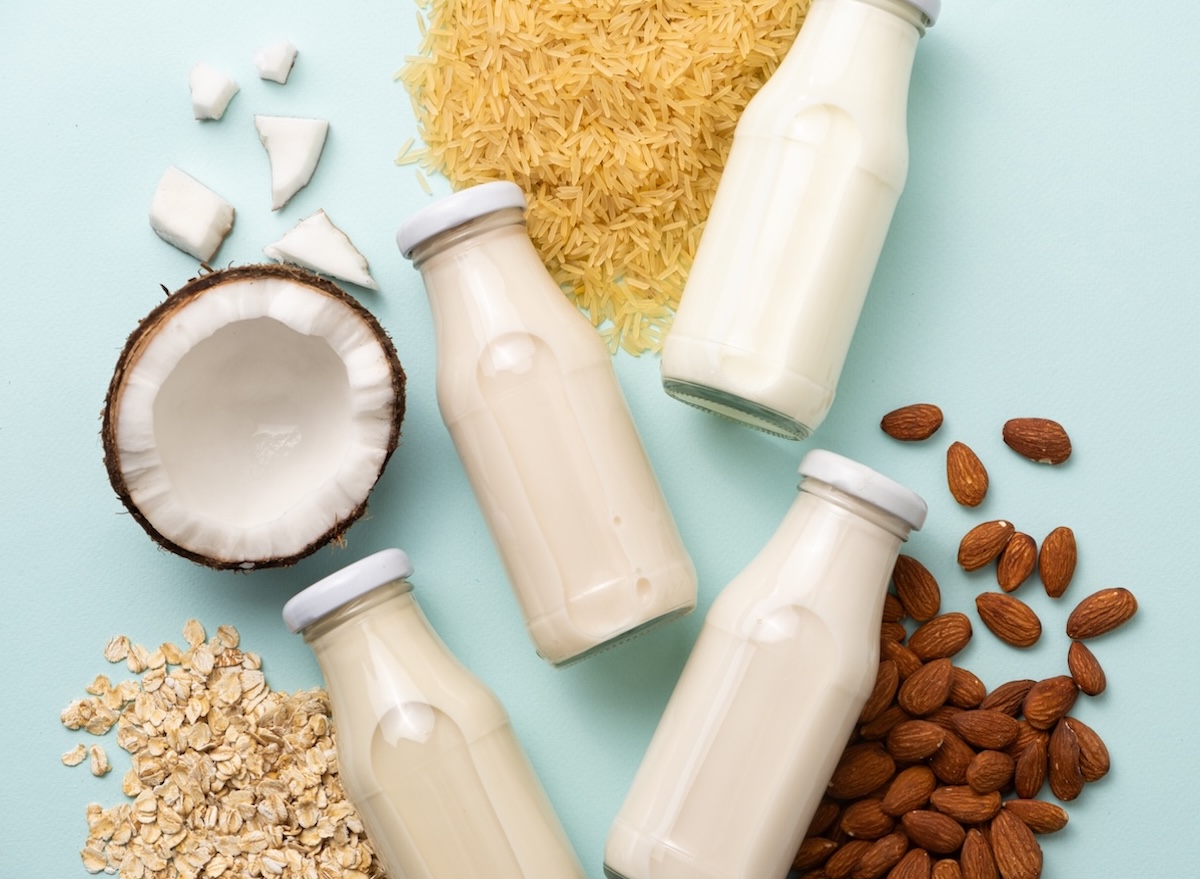
Non-dairy milks are a great alternative for those who are lactose intolerant, vegan or just prefer a plant-based option, but just because it doesn’t contain milk, doesn’t mean it’s healthy. Read the label and you’ll see some brands use junk ingredients, are filled with sugar, have high calories and little nutritional value. To help navigate through the slew of options, Eat This, Not That! spoke with health experts who share which non-dairy milks to leave at the store and why.
Cashew Milk
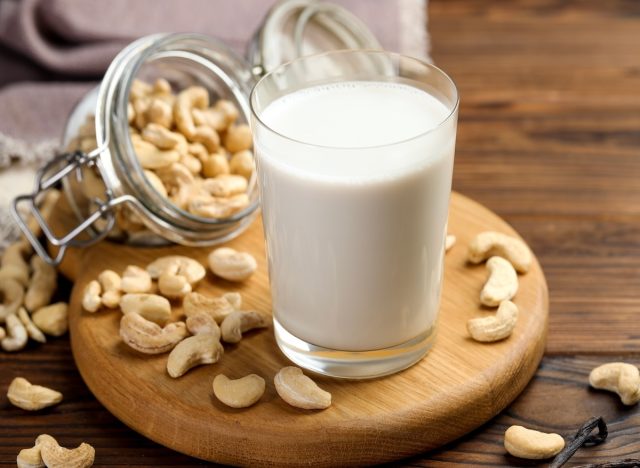
Gums like guar gum, xanthan gum, and gellan gum help give cashew milk a smoother and thicker texture, but it doesn’t agree with everyone.”Creamy, cashew milk has low protein content and may include added gums or stabilizers, which can trigger sensitive digestive systems,” says Candice Van Eeden, a Holistic Nutrition Coach at Kuon Healthcare. “It is also commonly enriched artificially to replicate the nutrition of dairy milk.”
Sweetened Vanilla Almond Milk
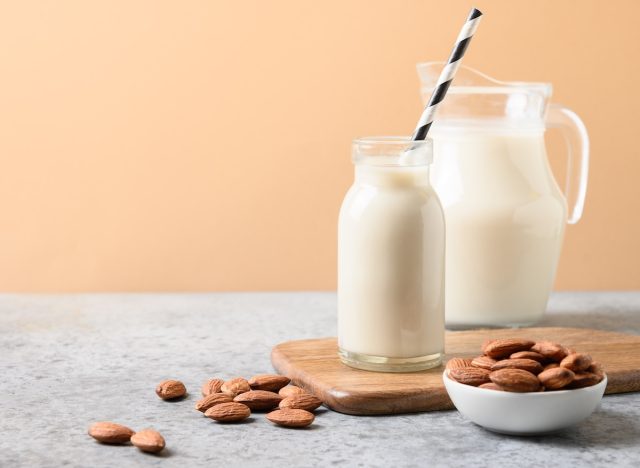
Sweetened vanilla almond milk is a go-to choice for many who want a touch of sweetness, but it contains more sugar than you probably realize. “Many varieties of sweetened plant-based milks have around 13 grams of added sugar, and it’s just not necessary for a delicious tasting plant milk,” says Tiffany Bruno, MS, RDN and Switch4Good’s Director of Education. If you want a vanilla flavor without the added sugar, look for unsweetened. Bruno adds, “It’s also important to note that cow’s milk has 12 grams of sugar per serving, so switching to a plant-based milk is the best way to reduce your sugar in these applications.”
Oat Coffee Creamer

Coffee creamer is a daily must-have for many, but oat coffee creamer is not the answer, according to Bruno who says to keep the small 8 oz serving size in mind. “The calories will add up quickly when you add a generous pour into your coffee,” she explains. “You definitely don’t need to give it up, just be mindful of how much you are adding. If you are trying to keep your morning beverage lower in calories, stick with an unsweetened nut-based milk, like cashew, that will be creamy but light in calories.”
Rice Milk
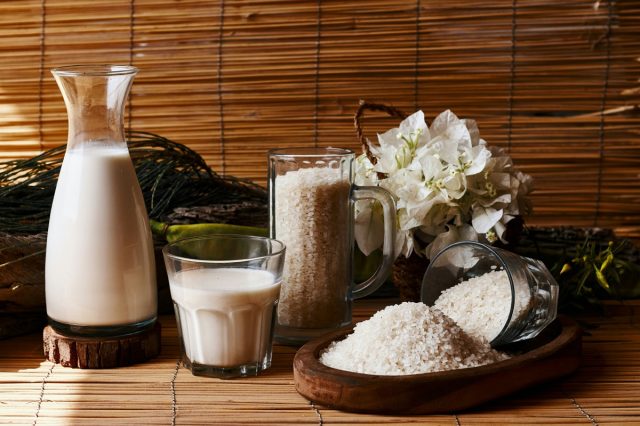
Rice milk is another popular choice for non-dairy milk, but it’s not a good source of protein for those trying to boost their daily intake. “For people who are relying on milk as a protein source, it won’t fill that role,” says Kathleen Benson, CSSD, CPT, RDN at VNutrition. “If you like rice milk for the taste or because it works best for your digestion, it can fit, but be sure to get protein elsewhere in your meal or snack.”
Sweetened Hemp Milk
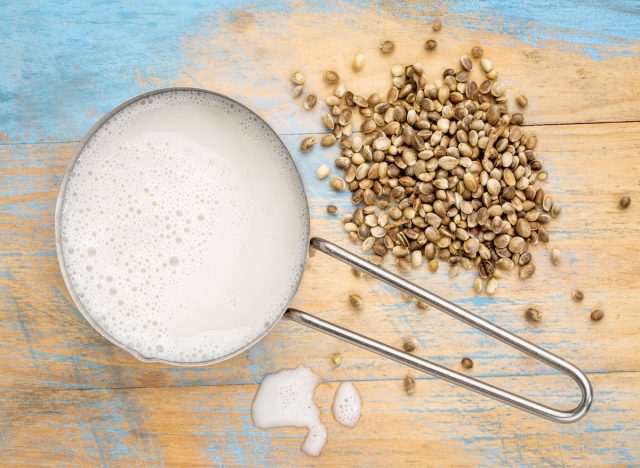
Hemp milk has a smooth, creamy texture and a mild, nutty flavor that makes it versatile for use in beverages, cooking, and baking. But avoid the sweetened option. Van Eeden says it’s loaded with sugar. “Hemp milk has the potential to be rich in omega-3s, but sweetened ones contain artificial sugar that does not add value to it,” she explains.
Oat Milk
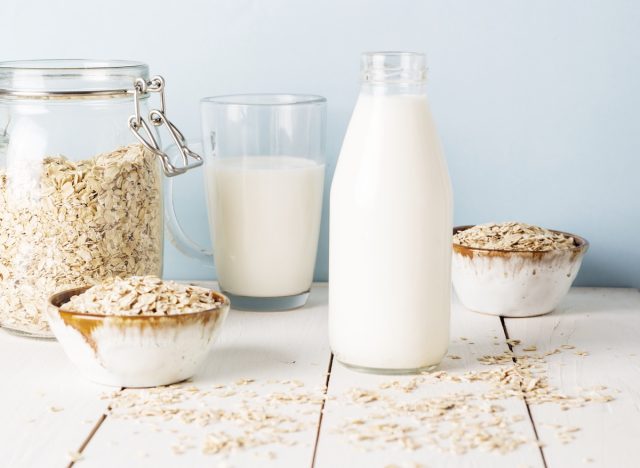
Oat milk tastes like dairy and is often a good choice to eat with cereal, but Benson says it’s an unhealthy combo. “When oat milk is paired with cereal, you’re really just adding more carbohydrates without the protein you’d get from dairy or soy milk,” she says. “For kids or anyone looking to meet protein goals through milk, it’s not a one-to-one swap.”Benson adds, “If you enjoy oat milk with cereal, try balancing your breakfast with another protein source like eggs, yogurt, or a protein-rich topping.”
Coconut Milk
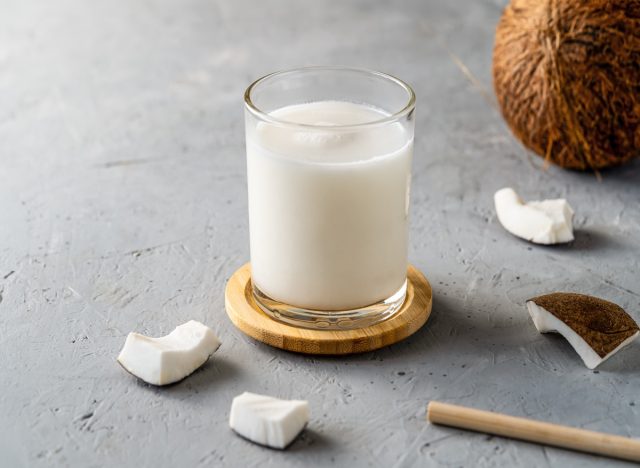
Coconut Milk has a creamy distinct flavor that’s delicious as a base in Asian dishes, but Van Eeden says it doesn’t have real nutritional benefits. “Most of the almond milks are low in protein and nutrients with very few real almonds and lots of added sugars,” she explains. “The excess sugar may cause spikes in blood sugar, which results in energy crashes.”